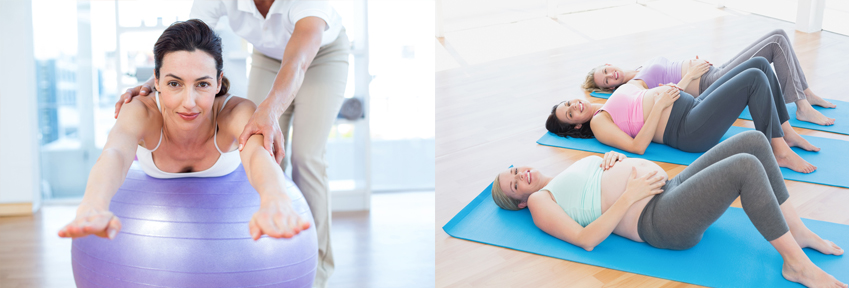
Women’s Health: Pelvic Floor Physiotherapy
Essence Physiotherapy supports women’s health throughout every stages of life. We try our best to understand the needs of every women and when time changes and life takes over, we need to look after our body again. Our female physiotherapists has a dedicated interest in women’s health that will help you bounce back again. We will conduct a thorough assessment and individually design a treatment plan to improve your symptoms and therefore your quality of life, in a safe and private room.
Research shows women’s health conditions have a major impact on their own quality of life (travel, social, activities, time and sleeping) and their partners (e.g. sexual interactions and intimacy). The client often feel worried, sympathetic, also embarrassed, angry and frustrated.
Women’s health physiotherapy can help with conditions such as:
- Urinary incontinence / bladder leakage (including stress, urge, overflow and mixed incontinence)
- Pelvic organ prolapses (bladder, uterus, rectum)
- Overactive bladder also known as bladder hyperactivity
- Daytime or night time urinary frequency
- Pelvic floor weakness or dysfunction
- Bowel disorder and chronic constipation
- Antenatal and post natal care and exercises – weak abdominals, abdominal separation and back care
- Other pregnancy related conditions such as pelvic girdle pain, rectus diastasic, carpal tunnel syndrome
Women’s health physiotherapy treatment is based on evidence and consist of education, lifestyle management, exercises using devices to help the client improve their symptoms and return to activities of daily living with confidence.
What is Pelvic floor?
The pelvic floor refers to the structures that support pelvic organs. It is a complex interplay of muscles, fascia and fibrous tissue. Weakness or damage to the pelvic floor can lead to a variety of symptoms and therefore it is usually the focus of the treatment.
Who is most at risk?
- Any women who has given birth particularly those who have had a complex vaginal birth e.g. forceps
- Any women with a history of chronic respiratory conditions and chronic constipation
- Any women with with a history of regular heavy lifting
- Any women who has been an elite athlete particularly high impact sports e.g. gymnastic, athletics or running
Your physiotherapist will prescribe you with individualised exercises to strengthen your pelvic floor muscles.
Other Important Facts!
What is Stress incontinence?
Involuntary urinary leakage when attempting physical exertion such as coughing, sneezing, laughing, running, jumping and standing from a chair.
Research shows 1/3 women experience leakage post-natal and 21% of Australian women report pelvic pain (Glazener et al. 2001) & (Pitts et al. 2008)
The good news is that the National Association for Continence (www.nafc.org) states that 75% of women who complete a pelvic floor fitness program regain control of the bladder.
How common is Pelvic Organ Prolapse in Australia?
- About 75% of women develop at least some degree of pelvic organ prolapse during their lifetime.
- 1 in 3 will have prolapse to the level of the vaginal entrance or beyond.
- Approximately 1 in 9 women have surgery for prolapse at some point in their lives.
Who gets Gestational Diabetes (GD)?
- Maternal age > 40 years old
- Family history of diabetes
- Previous pregnancy with GD (once diagnosed, there is 66% increased risk of developing it in a subsequent pregnancy
- BMI > 29
- Previous stillbirths or spontaneous miscarriage
Exercise is now acknowledged as an effective way to prevent Gestational Diabetes if performed through the entire length of the pregnancy, at least 3 times per week. To be preventative, the exercises need to start prior to pregnancy or in the first trimester of pregnancy
Postnatal Care – Your post childbirth recovery
- Perineal tear can result from injuries when giving birth with or without tools. Study shows early rehab of muscle strength is beneficial for long term function. Think Kegel Exercises!
- 6 weeks Pelvic floor muscle check postnatally is recommended particularly for vaginal births
- C-sections require deep core exercises to aid with your recovery
You can enjoy a one on one Physio session to have all the attention or join our Physio pilates type exercise classes!
Call us to take your first step to recovery and most importantly take control of your body again!

